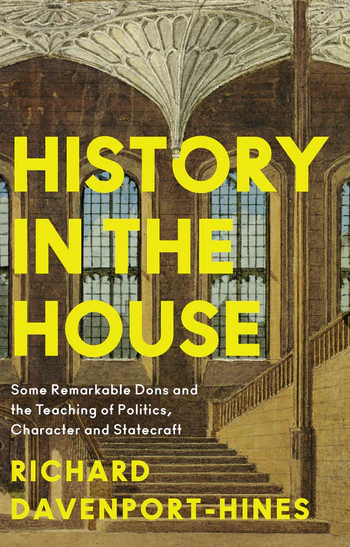History in the House Some Remarkable Dons and the Teaching of Politics, Character and Statecraft
Availability :
In Stock
₹ 1,259.10
M.R.P.:₹ 1399
You
Save: ₹139.90 (10.00% OFF)
(Inclusive
of all taxes)
Delivery:
₹ 0.00 Delivery charge
Author:
Richard Davenport-Hines
Publisher:
William Collins
ISBN-13:
9780008285722
Publishing Year:
20 Jun 2024
No. of Pages:
432
Language:
English
Book Binding:
Hardcover











